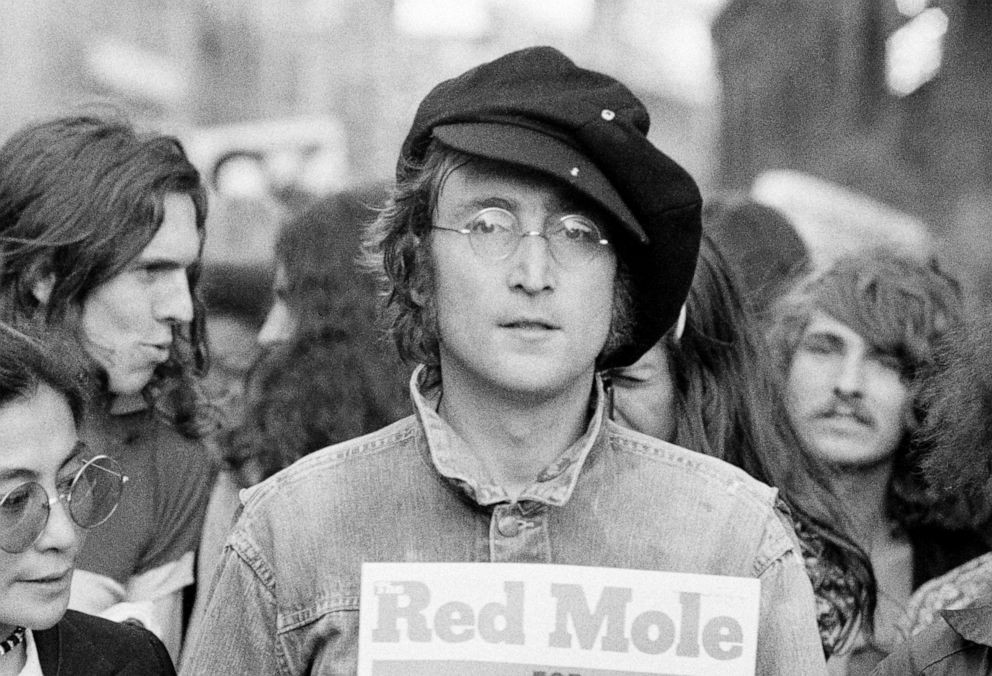Mark David Chapman, the man who murdered legendary musician John Lennon, sought “self-glory” and infamy, according to parole hearing transcripts obtained by ABC News. Chapman’s chilling confession sheds light on the motives behind a crime that shocked the world. This article delves into Chapman’s disturbing rationale and the parole hearing that denied him freedom for the 11th time.
Chapman, driven by a twisted sense of jealousy and a desire for notoriety, fatally shot Lennon outside his Manhattan apartment building on December 8, 1980. The assassination ended the life of a cultural icon and left an enduring scar on music history. But why did Chapman commit such a heinous act?
The Killer’s Confession: A Disturbing Pursuit of Glory
Chapman’s recent parole hearing revealed the disturbing truth behind his motivation. He admitted to being consumed by “self-glory” and fueled by resentment towards Lennon’s perceived privileged lifestyle.
“It was just self-glory, period,” Chapman confessed. “It boiled down to that. There’s no excuses.” He elaborated on his feelings of anger and jealousy, stemming from the contrast between his own life and Lennon’s wealth and fame.
“He has all of this money, lives in this beautiful apartment and he is into music representing a more cautious lifestyle, a more giving lifestyle,” Chapman explained to the parole board. This perceived disparity ignited a rage within him, culminating in the tragic event.
John Lennon at a rally in Hyde Park, London, 1975. This photo captures the vibrant spirit of the icon whose life was tragically cut short.
Premeditated Act and Alternate Targets
Chapman’s actions were not impulsive. He purchased the gun months in advance and traveled from Hawaii to New York City with the intent to kill. Chillingly, Lennon wasn’t his only target. Chapman had a list of other potential victims, highlighting the calculated nature of his crime. “I came up with whatever famous people I could,” he revealed.
“Infamy Brings Glory”: A Twisted Rationale
During the hearing, a parole commissioner pointed out the stark difference between glory and the infamy Chapman achieved. His chilling reply, “Infamy brings glory,” underscored his distorted mindset and ultimately sealed his fate. The parole board deemed his statement disturbing, emphasizing the enduring evil of his actions and the unsettling lack of remorse.
Mark David Chapman’s mugshot, a stark reminder of the man behind the murder of a music legend.
A Legacy of Loss and a Killer’s Remorse
Despite claiming a newfound faith and expressing remorse for Yoko Ono, Chapman’s words rang hollow. He acknowledged the pain he caused Ono, admitting he killed Lennon solely for his fame. His lengthy apology, while acknowledging Lennon’s character and contributions, failed to erase the devastation caused by his act.
Conclusion: A Crime Fueled by Envy and the Pursuit of Notoriety
The question of “Why Was Lennon Killed?” continues to haunt music lovers and historians. Chapman’s confession offers a glimpse into the disturbed mind of a killer driven by a toxic cocktail of jealousy and a desperate desire for fame, however twisted. The parole board’s decision to deny his release ensures that Chapman remains incarcerated, serving as a reminder of the tragic consequences of envy and the pursuit of infamy.
